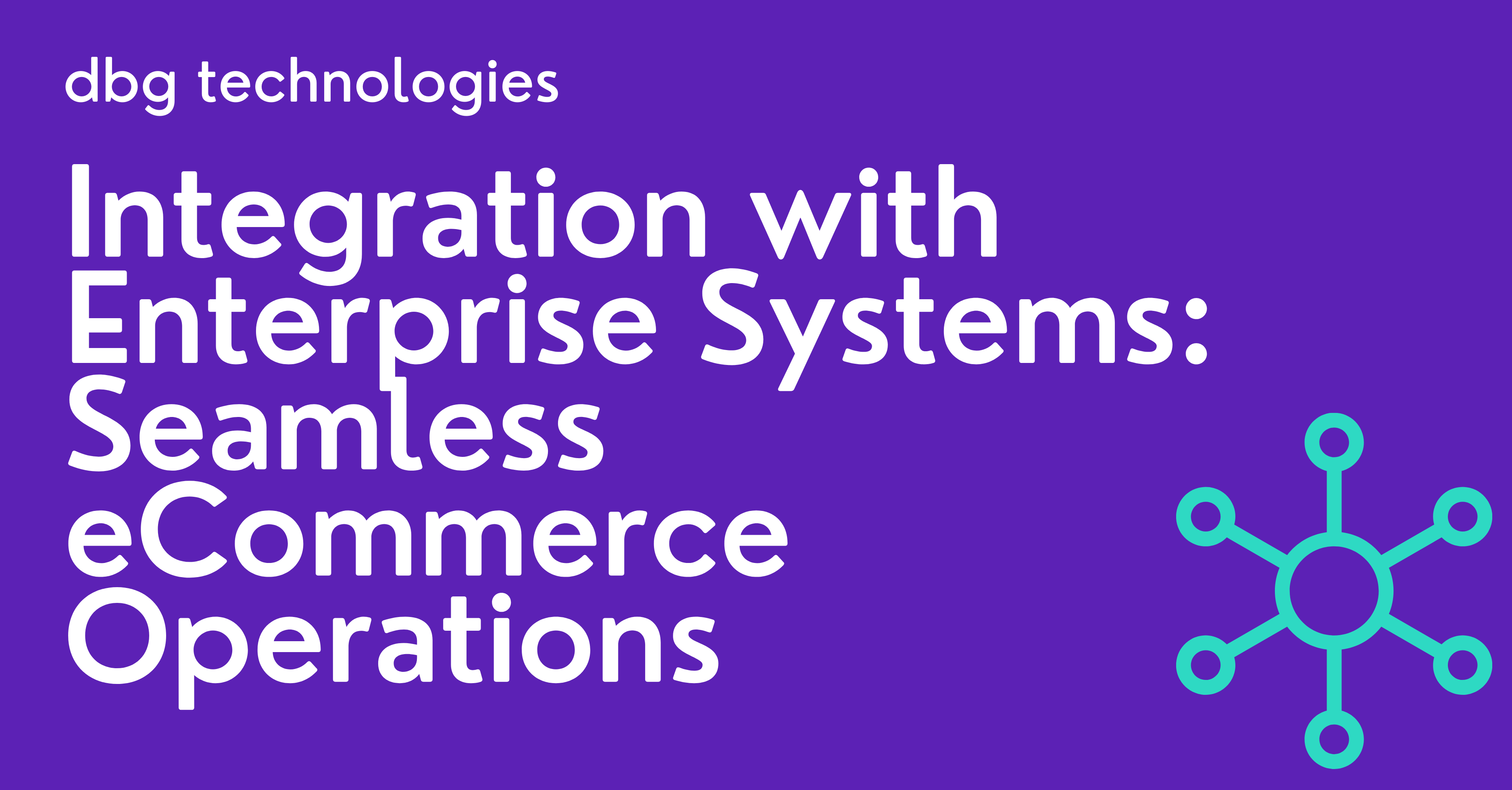 In the dynamic world of eCommerce, integration with enterprise systems has become a crucial factor for businesses striving for efficiency, scalability, and seamless operations.
In the dynamic world of eCommerce, integration with enterprise systems has become a crucial factor for businesses striving for efficiency, scalability, and seamless operations.
Integration enables data synchronisation, streamlined workflows, and enhanced visibility across various departments and systems.
Integration with enterprise systems involves connecting eCommerce platforms with other critical business systems such as Enterprise Resource Planning (ERP), Customer Relationship Management (CRM), inventory management, and fulfillment systems. It enables seamless flow of data and processes, ensuring that information is synchronised in real-time, eliminating manual data entry and reducing errors.
Integration enables automation and synchronisation of data, leading to streamlined workflows and improved operational efficiency. For example, when an order is placed on the eCommerce platform, integration with the ERP system automatically updates inventory levels, initiates order fulfillment, and generates invoices. This eliminates the need for manual data entry and reduces the risk of errors, enabling businesses to operate more efficiently and effectively.
Integration with enterprise systems provides real-time visibility into key business data. This empowers businesses to make informed decisions based on accurate and up-to-date information. For instance, sales data from the eCommerce platform can be seamlessly integrated with the CRM system, allowing sales teams to access customer information, order history, and preferences, enabling them to provide personalised and targeted service.
Integration between eCommerce platforms and inventory management systems is essential for accurate and efficient inventory management. Real-time synchronisation of inventory levels ensures that customers can see accurate stock availability, preventing overselling and stockouts. Integration with order fulfillment systems enables automated order processing, reducing manual intervention and improving order accuracy and fulfillment speed.
Integration with CRM systems enhances customer experience and relationship management. It enables a comprehensive view of customer interactions, purchase history, preferences, and support tickets, allowing businesses to provide personalised and tailored customer experiences. This integration enables targeted marketing campaigns, customer segmentation, and proactive customer support, ultimately leading to increased customer satisfaction and loyalty.
Integration with enterprise systems facilitates consolidated reporting and analytics. By combining data from different systems, businesses gain insights into overall performance, sales trends, customer behaviour, and operational efficiency. Integrated analytics help identify opportunities for growth, optimise marketing strategies, improve inventory planning, and enhance overall business decision-making.
Considerations for Successful Integration:
a. Compatibility and Scalability: Choose an eCommerce platform that offers robust integration capabilities and supports integration with various enterprise systems. Ensure that the integration solution is scalable and can accommodate future business growth.
b. Data Security and Compliance: Prioritise data security and compliance with relevant regulations. Implement secure data transfer protocols and ensure that sensitive customer and business data is protected during integration.
c. Customisation and Flexibility: Evaluate the flexibility and customisation options available for integration. Consider the specific needs of your business and ensure that the integration solution can be tailored to meet those requirements.
d. Expertise and Support: Seek the assistance of experienced integration specialists or consultants who can guide you through the integration process. Choose a platform that provides comprehensive support and resources to ensure a smooth integration experience.
Integration with enterprise systems is a game-changer for eCommerce businesses seeking seamless operations, improved efficiency, and data-driven decision-making. By connecting eCommerce platforms with critical business systems such as ERP, CRM, inventory management, and fulfillment systems, businesses can achieve streamlined workflows, enhanced customer experiences, accurate inventory management, and real-time visibility into crucial data. Prioritising compatibility, scalability, data security, customisation, and expert support will ensure a successful integration journey, unlocking the full potential of your eCommerce operations and paving the way for sustained growth and success.
Talk to us today about how we can help you use integrations sucessfully!
